It’s easy to think bosses and leaders are the same. But in fact, they’re nearly opposites. The one with the nice, sleek room at the end of the corridor, that one is the boss and a leader can be your supervisor or the colleague who sits next to you and shares your stapler. Leaders lead, motivate and empower. Bosses just try to get the job done. While bosses are focused on themselves, leaders look for ways they can help and encourage those around them. Have you ever wondered that a boss could be a leader too? But not all bosses are leaders. There exists a line of demarcation amidst the nature and characteristics of these two personalities. Acting “like a boss” may not be the best way to get respect from your employees. A strong leader has the leadership qualities which aims to shift workplace culture. So what makes a leader different from a boss? And which should you be? Here’s a list that will help you differentiate :
1. Leaders lead and Bosses push

When you motivate your employees rather than being strict with them, only then it inspires them to follow their leader’s example. Bosses tend to push employees instead of directing them and end up in creating differences among them. True leaders frequently present ideas and work alongside their employees. They clearly communicate objectives to the team and their actions are aimed at achieving goals together. When a team has confidence in a leader, it can help improve team culture and motivate employees to contribute.
2. Leaders listen and Bosses order

Leaders understand the value of seeking and incorporating the opinions of others into the decision-making process. They listen to their employees and do no consider in appropriate to talk above them. They value their decisions but bosses tend to dominate themselves, and probably abuse their power. They expect employees to listen and carry out their commands, with little or no direction. This attitude does not promote anyone to build a team of engaged employees who want to be valued for their knowledge and skills.
3. Leaders equate and Bosses discriminate

The business world is not an elementary school – although the idea of a “teacher’s pet” is as unattractive in the office as it is in the classroom. But bosses can sometimes pick a favorite employee or two, which can result in unfair treatment. This lowers the morale of employees and mostly lower the productivity of the business. Good leaders treat everyone equally, giving one person’s ideas the same weight as everyone else on the team. Strong leaders don’t let personal preferences get in the way of creating a dynamic environment.
4. Leaders put in and Bosses lay back
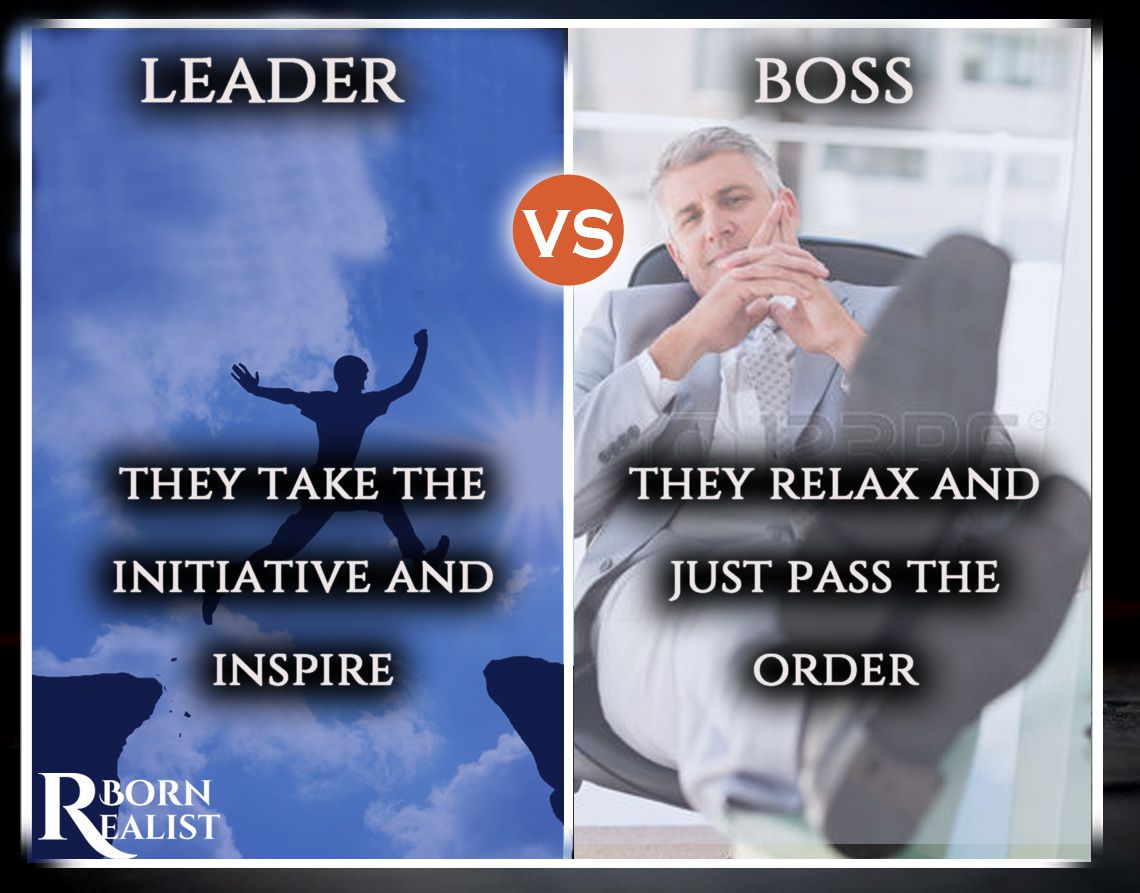
When a company launches a major project, true leaders get “in the trenches” with their teams. Leaders take initiative. Seeing that a leader is as invested in a project as the team can inspire others to do their best work. While bosses tend to stand aside and “supervise” others doing the work. They often sit in their air conditioned offices in a much comfortable chair and only pass the order to be carried out. This hurts team motivation, collaboration and creativity.
5. Leaders construct and Bosses destruct

Anything can go wrong and mistakes can be conducted in the matter of businesses, the point arises as to how to tackle with the problem! Whether you want to be supportive in the matter and find out a quick solution or you want to scold your way out of the problem and leave it be. However, the vast majority of matters involving an employee can be handled with a dose of constructive criticism, not harsh scolding, whether in private or in front of peers. Leaders offer sound advice in a private setting, while bosses tend to scold and may even threaten their employees, which can leave them feeling concerned, embarrassed and defeated. One should deliver discipline and the approach should be to make employees learn something new even out of mistakes.
7 Ways To Leave A Positive Impact On Others
6. Leaders earn respect and Bosses intimidate
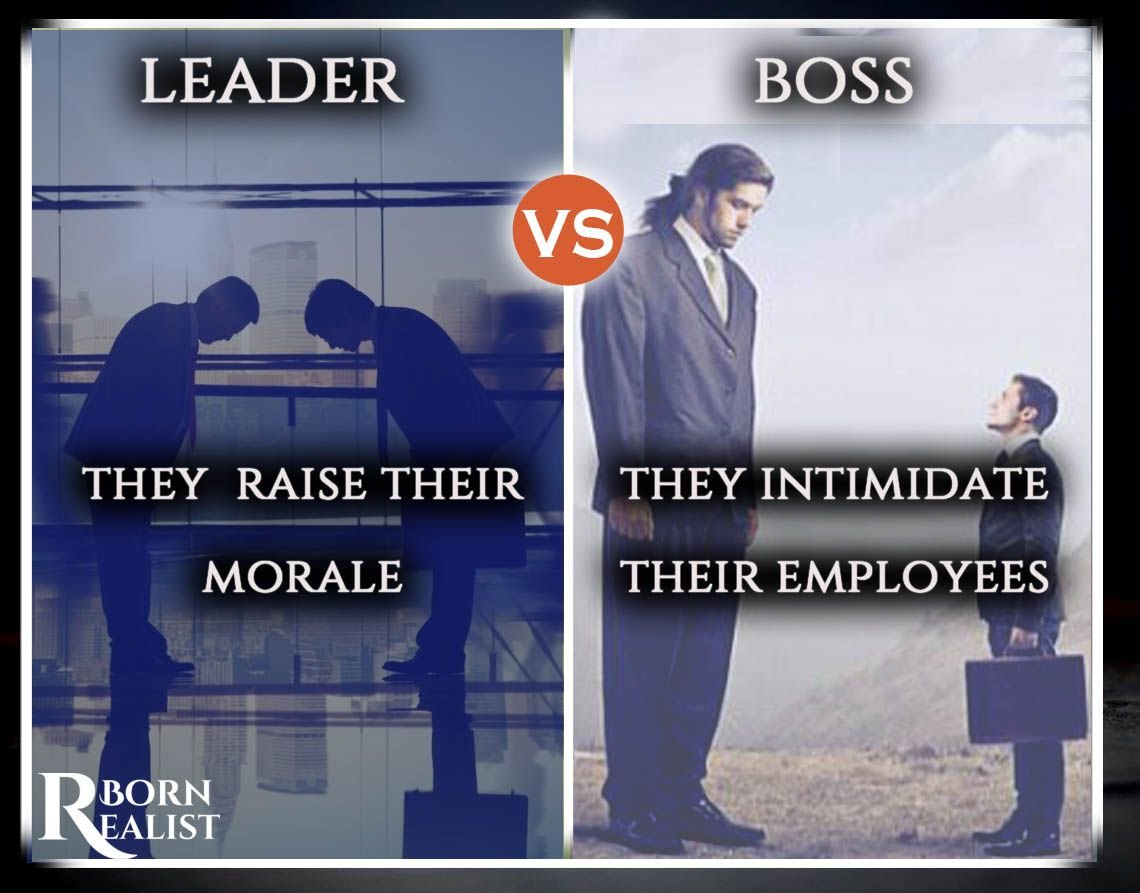
“A person would rather be feared than respected”, This philosophy is not going to work in the modern office. Leaders understand that intimidating employees and attempting to control them with fear will not work in any setting. Fear leads to doubt, poor morale and productivity loss. Smart leaders display confidence in their employees to make decisions on their own. While bosses know how to manage their control over their employees because somehow they are above their employees.
7. Leaders invest themselves and Bosses ignore
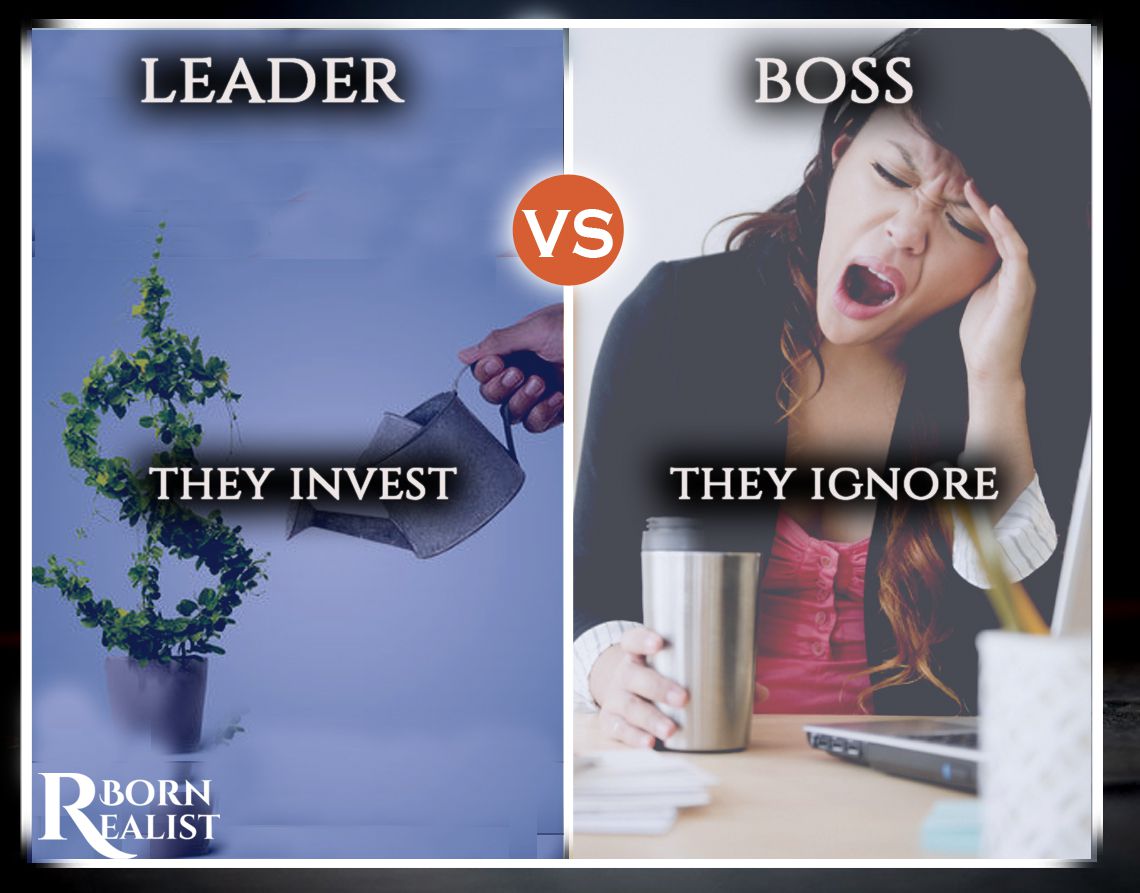
Leaders invest time and effort into developing employees in their profession, teaching them new skills and helping them advance in their careers. Bosses when choose the favorite one tend to ignore a majority of their employees. This gives the employees to loose the confidence in their job and they feel they are drifting with an uncertain future. True leaders make a commitment to access their management styles, understand these key differences and then make a concerted effort to put these good leadership characteristics into action.
8. Leaders gives credit and Bosses take credit
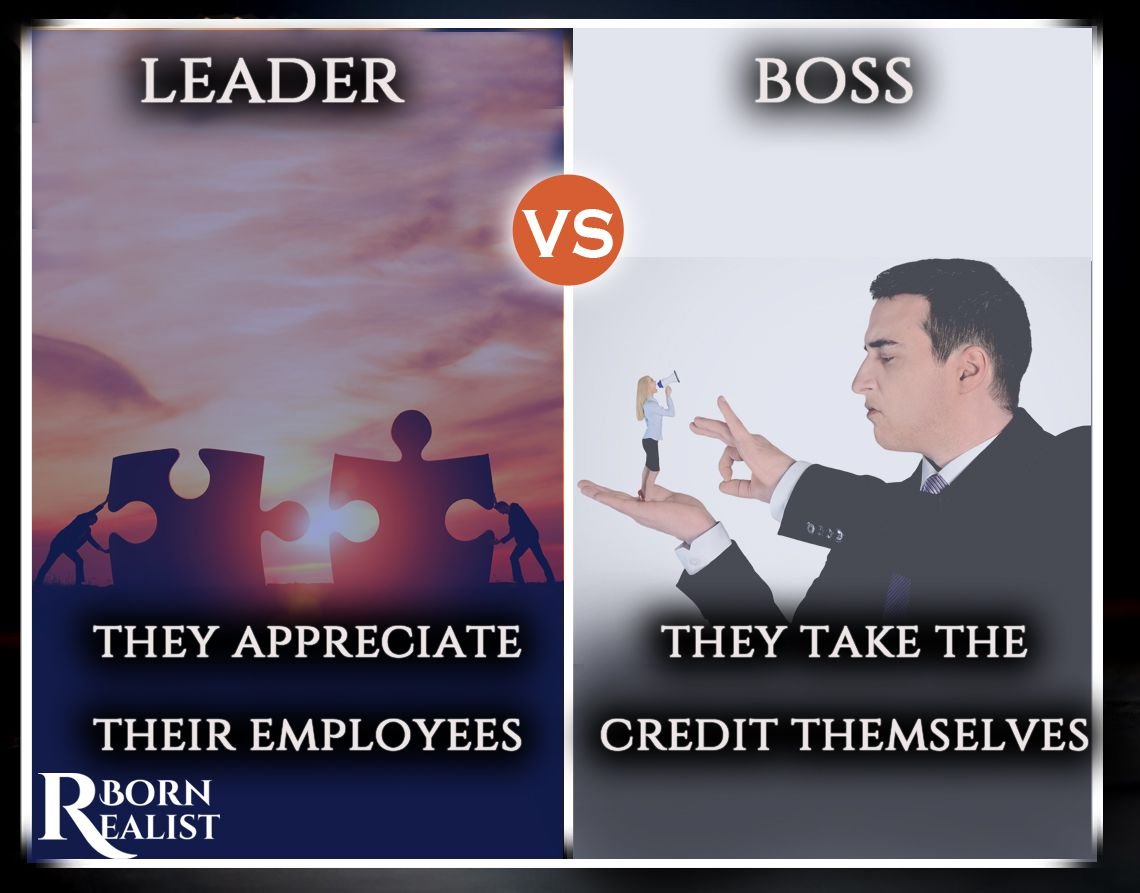
The leader has the potential to appreciate the employees whenever they are finished with a project. He/She knows how to motivate his employees to encourage them to work with more enthusiasm. It has to do with the appreciation the employee receives from his boss but when the boss is the cunning one and takes away all the appreciation it often demotivates the employee and he is hung up in the scenario where his hard work has got him nothing and he looses his confidence.
9. Leaders develops people and Bosses uses people
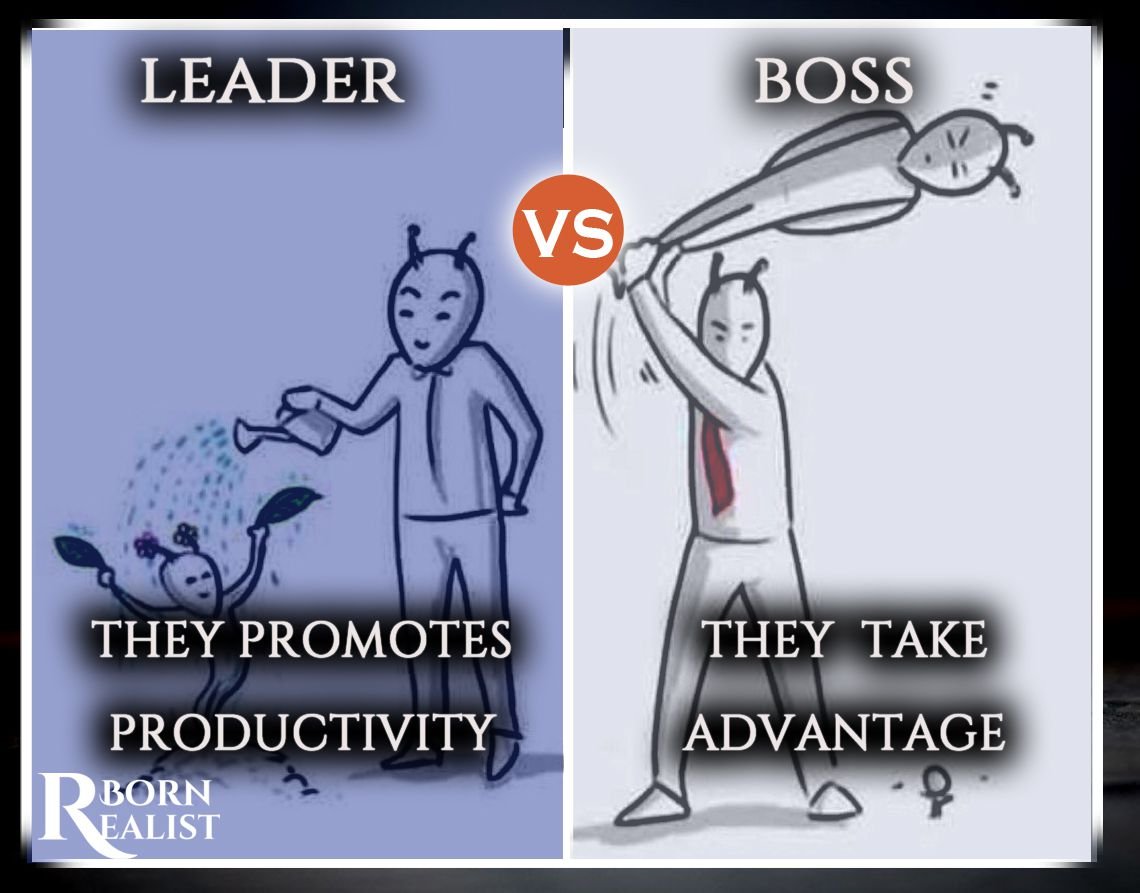
A leader considers his employees as his family and you can not just be mean to your family members. He/She promotes to put effort in their productivity and builds up confidence in them. By keeping the company’s best interests in mind, a positive and powerful future can more easily be secured. All of this will inspire the entire team to work toward a common goal. But when the boss is not able to invest in his employees and treats them as a work force only, it can badly affect the progress of the company.
10. Leaders focus on vision and Bosses on structure
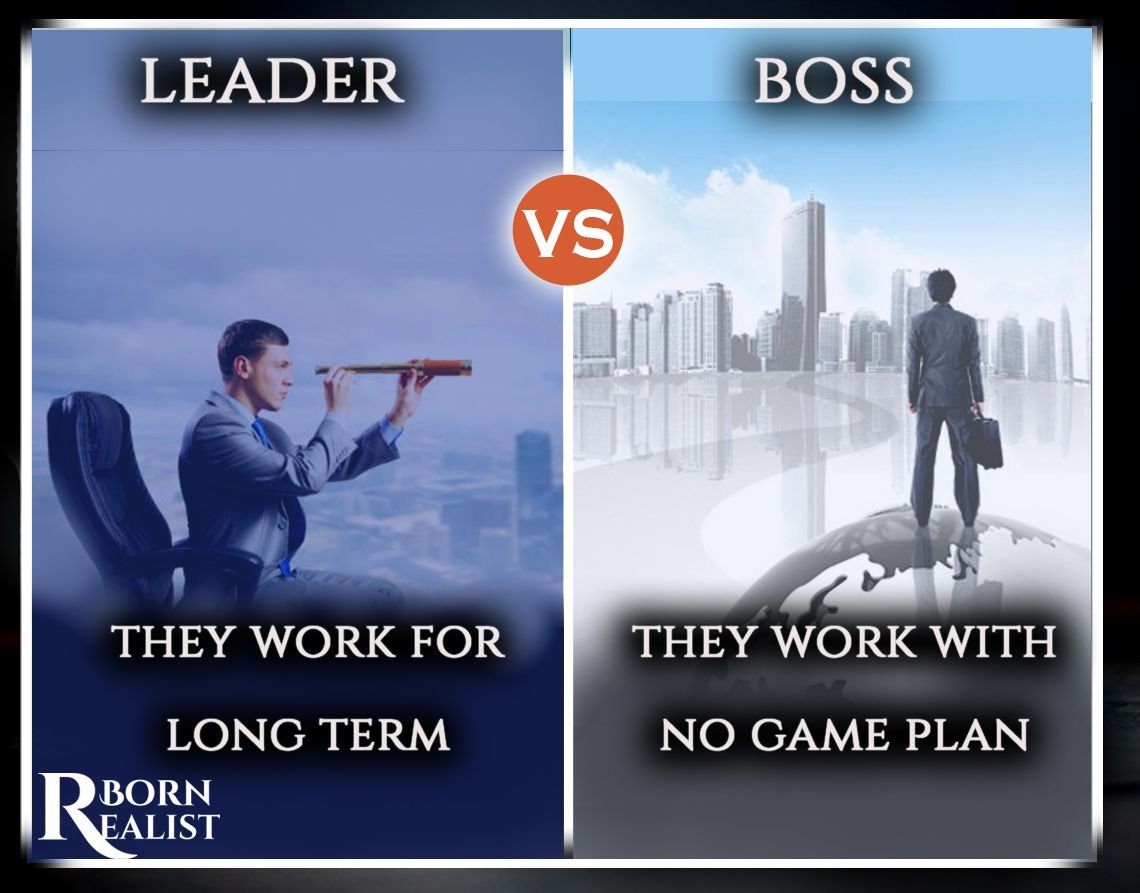
Innumerable factors can drag an otherwise great job down to sheer mediocrity–and a lack of direction is at the helm of these issues. A strong leader assigns tasks that show a clear vision for the company’s future, and provides team members the necessary assurance they’re actually working toward something. It’s amazing what a bit of aim can do, and the ensuing morale boost drives quality and results that a boss simply can’t achieve because they merely think about quick ways to get to the top and forget to challenge each other every day to do their best work and solve big problems.
Liked this? Check this also: 11 Ways to Get Back After Serious Failure
Article by Born Realist






